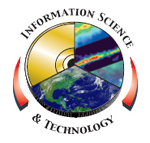
Please Note: The content on this page is not maintained after the colloquium event is completed. As such, some links may no longer be functional.
Peyush Jain
Overview of JPSS GRAVITE system
Wednesday, September 17, 2014
Building 3 Auditorium - 11:30 AM
(Coffee and cookies at 10:30 AM)
The Joint Polar Satellite System (JPSS) is the Nation's next-generation operational environmental satellite system that acquires and distributes global environmental data from multiple polar-orbiting satellites. JPSS is a collaborative program between National Oceanic and Atmospheric Administration's (NOAA) and National Aeronautics and Space Administration (NASA). NASA is acquiring and implementing the JPSS, comprised of flight and ground systems on behalf of NOAA. The JPSS satellites are planned to fly in afternoon orbit and will provide operational continuity of satellite-based observations and products for Suomi National Polar-orbiting Partnership (SNPP) satellite.
Government Resource for Algorithm Verification, Independent Test, and Evaluation (GRAVITE) system is a NOAA system, developed and deployed by JPSS Ground Project to support Calibration and Validation (Cal/Val), Data Quality Monitoring, and Algorithm Investigation, Tuning and Integration. It has evolved as a system since it was first put into operations to support SNPP mission. It is a robust, reliable, maintainable, scalable, and secure system that uses Apache Object Oriented Data Technology (OODT) open source software, supports development, test, and production strings, and is compliant with NASA and NOAA standards.
Peyush Jain is a Computer Engineer in Science Data Systems Branch (Code 586) of NASA Goddard Space Flight Center. He is currently supporting the Joint Polar Satellite System (JPSS) Ground Project as the GRAVITE system development manager, where he has played a pivotal role in leading design and implementation of science data system using Apache Object Oriented Technology (OODT). In the past, he was Principle Investigator for IRAD-funded efforts like LIDAR-based Navigation System and Fusion of Sensors for Autonomous Landing. He designed and developed software in several Goddard projects including Scientific Visualization Studio (SVS), Small Rocket/Spacecraft Technologies (SMART), integrated Space Weather Analysis System (iSWA) and Integrated Lunar Information Architecture for Decision Support (ILIADS). He received his M.S. degree in Information Systems and Technology from Johns Hopkins University, and B.S. degree in Computer Science from University of Maryland at College Park in 2003 and 2001 respectively.
IS&T Colloquium Committee Host: John Donohue
Sign language interpreter upon request: 301-286-7040
Request future announcements
